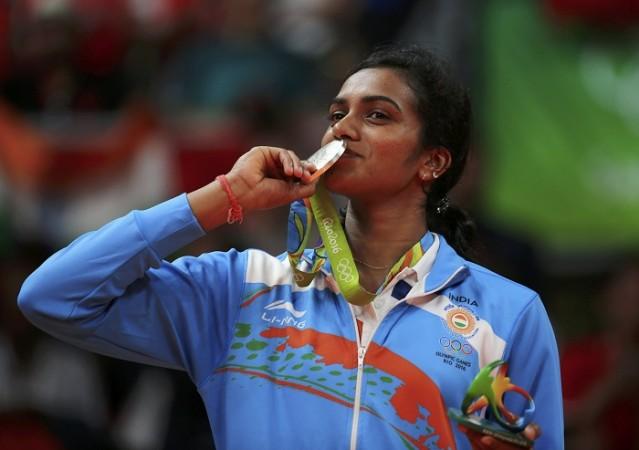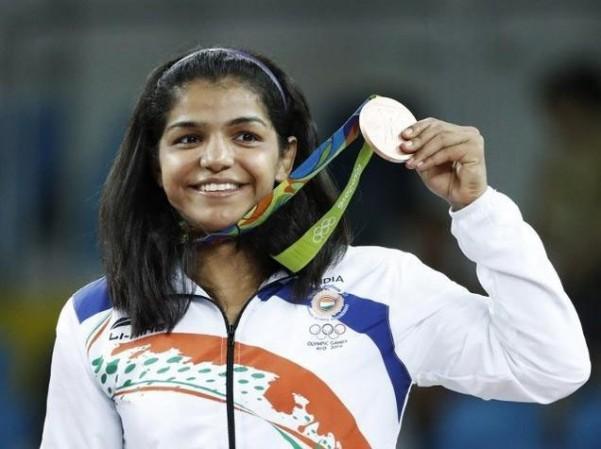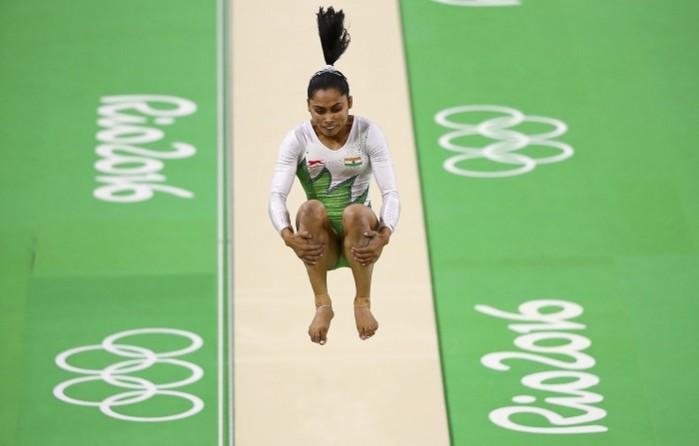
In 2015, exactly a year before Rio Olympics, the then Sports Minister of India, Sarbananda Sonowal, had said that the country would be gunning for 10 or more medals at the quadrennial event.
The prospects of a few if not 10 were bright as India headed into the Games with quite a few in-form athletes. A lot was expected of veteran Indian shooters Abhinav Bindra and Gagan Narang along with Jitu Rai, who had been consistently impressing at ISSF World Championships. And then there were the ever-present hopes on the men's hockey team, who were considered dark horses at the Games.
Not to forget, the expectations on Saina Nehwal, who had won a bronze at the previous edition of the Games in London. Boxers Vikas Krishan and wrestler Yogeshwar Dutt also carried huge weights of expectation to Rio de Janeiro along with mixed doubles tennis team of Rohan Bopanna and Sania Mirza.
However, 11 days in Rio de Janeiro passed without an Indian standing on the podium. Bindra came close to a second Olympic medal, only to agonisingly finish fourth in 10m Air Rifle. Narang and Jitu failed to replicate their World Championships performances at the biggest stage.
However, on the night of August 18, an Indian, whose name was little known outside the sporting community, made headlines. Sakshi Malik, 23-year-old from Rohtak - a town known for producing quality wrestlers in the North Indian state of Haryana - outshone other wrestlers, including the Phogat sisters, and won the country's first medal in Rio de Janeiro.
Malik stunned Kyrgyzstan wrestler Aisuluu Tynybekova 8-5 in the bronze medal playoff match after coming back from behind. In the dying moments of the match, as the country watched on, the young wrestler claimed three decisive points by pinning down her opponent. There was more drama as the referees wanted to verify the Indian wrestlers' final move on replay before awarding her with the three points.

The television commentators called Malik a fighter as she had lost the quarter-final and then made use of the repechage rounds to get to the bronze medal playoffs. She had come from behind in all of her matches, displaying courage and never-say-die attitude.
Malik hardly could hide her joy. She was jumping in joy as the referees confirmed the final scoreline. She did a victory lap with after lifting her coach on her shoulders. What a sight, that was!
#SakshiMalik is a reminder of what cn happn if u don't kill a girl child.When d going gets tough,its our girls who get going &save our pride
— Virender Sehwag (@virendersehwag) August 18, 2016
The girls were not done yet. A day after Malik's win, badminton sensation PV Sindhu had to play her gold medal match in the Women's singles category. Special prayers were held across the country in the lead-up to the match. Such scenes were only reserved to Indian cricketers. But, it was a massive moment for the sporting contingent as the 21-year-old had an opportunity to become the first female athlete to win an individual Olympic gold from the country.
The nation started to celebrate when Sindhu won the first game 21-19 against Carolina Marin. A few minutes later, the scoreline read 19-21, 21-12, 21-15 in favour of the Spaniard. Yet the Indian shuttler was standing at the podium with a big smile on her face. The people, who had started celebrating, did not stop, but only continued to rejoice the performance of their hero in Rio.
Sindhu had beaten the likes of Tai Tzu Ying, Wang Yihan and Nozomi Okuhara en route to the podium. More importantly, she became an inspiration to millions of women, who wanted to break free and pursue their dreams - the next generation Sindhus and Maliks.
Not just these victories, the story of a young girl from Tripura - a hilly state in Northeast India, falling short at the last hurdle also is worth telling our grandchildren. On August 15, when the country was celebrating its Independence day, 23-year-old Dipa Karmakar did the country proud by finishing fourth at the women's vault finals.

Karmakar had already created history by becoming the first Indian woman to qualify for vault finals in her maiden appearance at the games. She finished with an average of 15.066 points, 0.15 less than the eventual bronze winner Giulia Steingruber.
Minutes after she knew she was out of the medal race, all that she thought was about winning a gold at 2020 Tokyo Olympics. Girl power, indeed!








